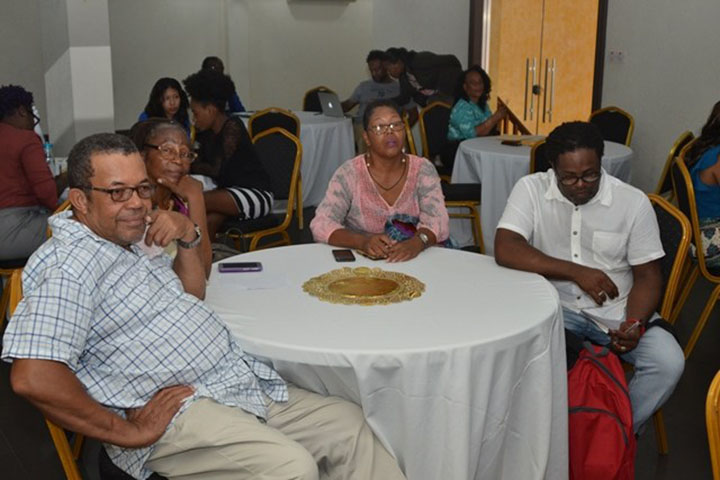Following the outcome of last week’s National Cultural Policy consultations, the Department of Culture will be hosting another series of consultations that will target specific sectors in the Creative Industries, according to Cultural Policy Advisor Ruel Johnson.
In an interview, Johnson said last week’s three-day consultation, which targeted government agencies, the private sector and non-governmental stakeholder organisations, was “very successful.”
He noted that the first phase of consultations was done in 2015 and it informed the first draft of the national cultural policy, which was completed by 2017. The framework has been available online since. Johnson said now that the second phase of consultations is over, the Department will embark on a third, which will commence next month.
Before the third phase begins, however, Johnson said, Ministerial staff will have to be trained. A date for the commencement of phase three was not revealed. However, Johnson said, the next series of consultations will target specific stakeholders, such as musicians and performing artists, among numerous others. Following the end of the consultations, Johnson said, “the significantly improved document” will be handed over to the department by the end of this year.
In relation to the recent consultation, Johnson disclosed that stakeholders made some significant suggestions which will be included in the document. Some suggestions that were made, he said, are already included in the document.
The second phase of consultations, which was a collaboration between the Government of Guyana and the United Nations Educational Scientific and Cultural Organization (UNESCO), began last Tuesday and concluded last Thursday at the Tower Hotel. The consultations were led by the Director of Culture (ag) Tamika Boatswain and Johnson.
Lead facilitator of the consultations was Jamaican Sydney Bartley, an expert on cultural policy. Bartley was accompanied by Yuri Peshkov, Programme Specialist for Culture in the UNESCO Kingston Cluster Office.
During the launching of the consultation last week, Social Cohesion Minister George Norton said that the process was delayed due to unforeseeable circumstances, such as budgetary constraints and the issue of the no-confidence motion that was passed against the government.
At the start of the workshop, the draft framework policy was presented to the stakeholders by Johnson, who said that there are three primary processes that will be involved in making it a working policy. These are: policy formulation, which consists of ensuring that the text of the policy is informed by sub-processes that includes stakeholder and general citizen involvement; expert technical input and senior policymaker imprimatur and mapping, which includes a detailed assessment of the environment in which the policy will be implemented, inclusive of the physical, social, legislative and wider international aspects of that environment; and implementation as informed by the other two components.
According to Johnson, three areas were identified under the general theme of “mainstreaming culture in development.” These were: Education, Environment and Citizenship. The three factors emerged from research and consultations, which was a Prince Claus fund-supported Janus Cultural Policy Initiative. Those three areas, he said, correspond directly to three of the six thematic policy areas coming out of the UNESCO Post-2015 dialogues on Culture in Development. In addition, he said, it is the Department’s intention to focus on these three areas for the policy development and implementation cycle, with Sustainable Urbanisation, Gender, and Poverty Reduction being the focus areas for 2021 to 2025, and review and reinforcement of all areas for 2026 to 2030.
The 72-page draft policy explains that its main objectives are to:
* Ensure that strong, sustainable systems are put in place to identify, protect and preserve both our tangible and intangible cultural heritage and to promote our diversity as our core national identity.
* Develop our creative arts and industries and other forms of cultural expression in order to both enrich the life of our citizens as well as to diversify our evolving economy.
* Ensure that culture is mainstreamed into development initiatives in keeping with both national priorities and international obligations.
According to Johnson, the primary purpose of the document is to provide a framework of constitutionally-based commitment to ensure that the diverse heritage of Guyanese is celebrated and employed as a tool for cohesion. It is also to ensure that Guyanese, especially the youths, have access to a good and creative life in society. (Laurel Sutherland)






